Raising the roof: Cultivating Singapore’s urban farming scene
Advertizing
Experiences
Raising the roof: Cultivating Singapore's urban farming scene
Phone call information technology a social movement or Singapore's solution to sustainable self-sufficiency, merely urban farming in our garden city is growing to new heights.
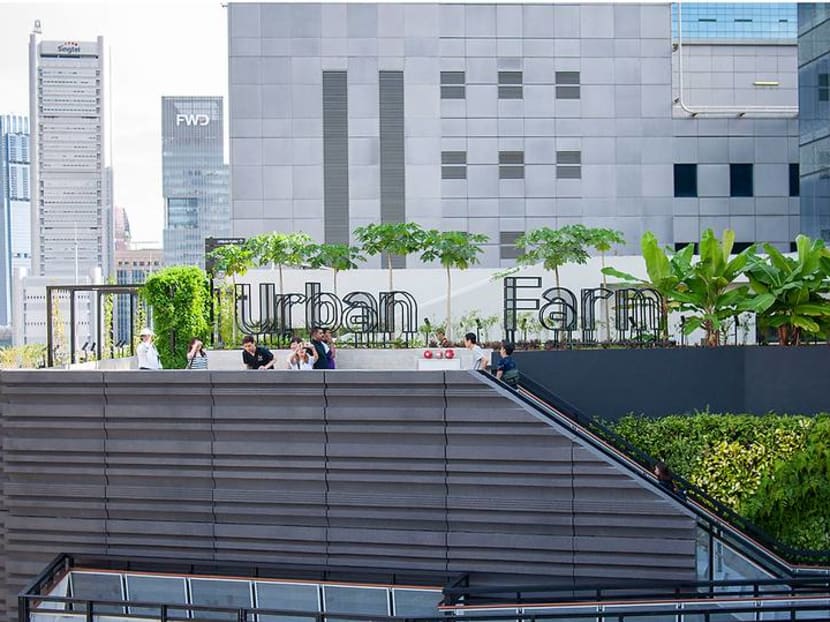
NOKA by Open Farm Community at Funan Mall is i of the latest urban farms to take root in Singapore. (Photo: NOKA)
23 Sep 2022 06:30AM (Updated: 04 Jul 2022 10:43AM)
Whether you lot're wandering through a residential expanse or exploring the recently re-opened Funan mall, you may have noticed new urban farms sprouting up – flourishing with fruit, herbs and vegetables, occasionally tilapia inconspicuously pond in an aquaponics organisation.
Urban farming has go quite a bit more than a fad or innovation showcase for our garden city. "The practice of urban farming has picked up in scale and sophistication globally in recent years," said an Urban Redevelopment Authority (URA) spokesperson.
"In Singapore, we encourage innovative urban farming approaches such every bit rooftop farming, which optimises country, introduces more greenery into the built surround, and potentially enhances our nutrient supply resilience."
Several companies have taken on the gargantuan task of cultivating the urban farming scene here. Rooftop farming pioneer, Comcrop (brusque for Community Ingather), has been hard at piece of work with its latest commercial subcontract, an 11-month-old greenhouse in Woodlands Loop. Edible Garden City (EGC) has more than 200 farms across the isle and works closely with restaurants to ensure sustainable supply and demand.
READ> Why this Michelin star chef spends then much time on Singapore farms
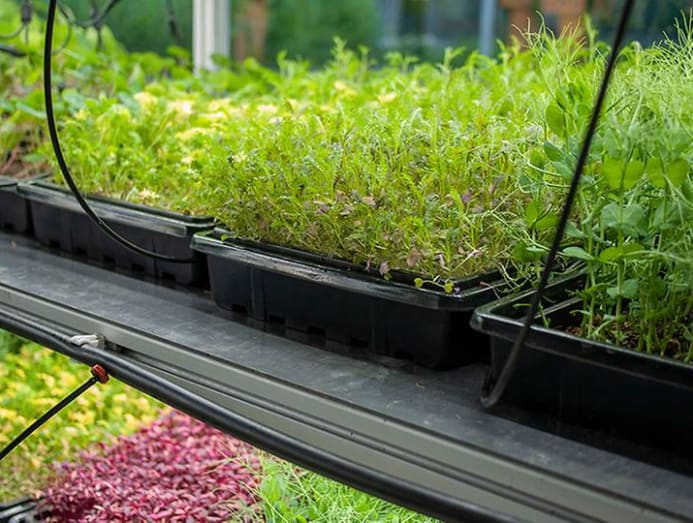
Citiponics has fabricated a name for itself building water-efficient aqua organic "growing towers" that tin be used to build anything from butterhead lettuce to sweet basil. In April this year, they opened the starting time commercial farm on the rooftop of a multi-storey auto park. The farm produces vegetables sold at the Ang Mo Kio Hub outlet of NTUC FairPrice under the brand, LeafWell.
Heaven Greens is arguably the nigh impressive urban farming venture. Information technology is the world'due south first depression carbon, hydraulic driven vertical subcontract, and has been recognised globally for its sustainability innovation.
In that location are several benefits to having our farms so close to domicile. Through community gardens or access to commercial-scale farm produce, the public accept an opportunity to understand how nutrient is grown.
As urban farmers take great care to ensure produce is pesticide-free, while incorporating sustainable aught-waste product and energy-saving practices, there is as well comfort in knowing where the food comes from and its affect on the surroundings.
READ> The architects out to salvage the earth through sustainable design
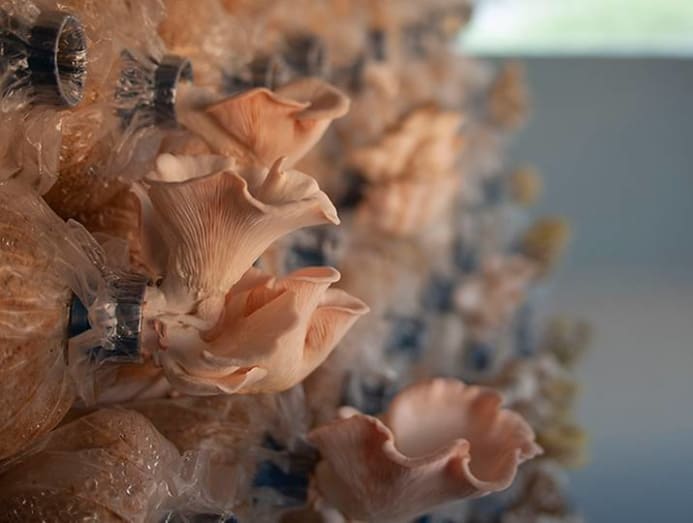
"Having food production within the city or heartland [too] brings food closer to the consumers equally it cuts transport costs and carbon emissions, and may improve ecology sustainability," said a spokesperson from the Singapore Food Bureau (SFA), the new statutory board created in April this year to develop the food supply and industry.
However, in that location are also broader concerns of the touch of climate change and food security in Singapore. It is why much is beingness done by the likes of the SFA to achieve "30 past 30" – "which is to develop the capability and capacity of our agri-food industry to produce thirty per cent of Singapore's nutritional needs past 2030," said the SFA. "Local production will assist mitigate our reliance on imports and serve every bit a buffer during supply disruptions to import sources."
Singapore even so has a long mode to go equally the urban farming scene is still a very young one. Only there are opportunities for growth given the continued development here. In the URA's latest phase of the Landscaping for Urban Spaces and High-Rises (LUSH) 3.0 scheme, "developers of commercial and hotel buildings located in loftier footfall areas can propose rooftop farms to meet landscape replacement requirements."
Naturally, developers are taking advantage of this. I of the newest kids on the cake is the urban rooftop farm run past EGC for new Japanese restaurant, Noka by Open Farm Community at Funan. Noka is putting its money on offering Japanese cuisine that infuses local ingredients, from the butterfly blue pea to the ulam raja blossom – ingredients grown and tended to by the farmers at EGC's 5,000 sq. ft. urban garden just outside Noka's windows.
READ> Spa Esprit's Cynthia Chua's starting time Japanese eating place in Singapore
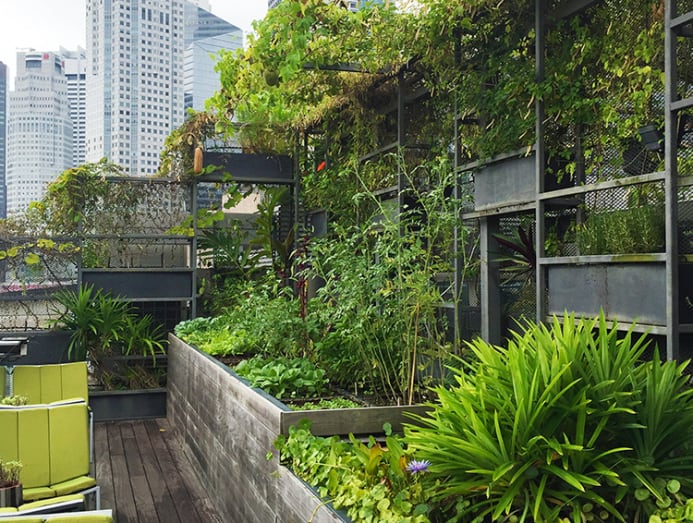
"The urban farming infinite is withal in the emerging stages of development," said Bjorn Low, co-founder of EGC. "We are literally scratching the surface of what's possible. The areas of growth are in the application of urban nutrient production in urban pattern and metropolis planning, the utilise of urban farms for deeper customs engagement and the office urban farms plays in creating social and ecology touch on in the city."
While many farmers accept found ways to catechumen existing rooftop spaces into farms or gardens, Jonathan Choe, acquaintance at WOHA Architects, says that i of the greatest opportunities to advance urban farming in Singapore is to build an entirely integrated system that not only incorporates growing spaces, merely also how these farms can interact with the entire building infrastructure – from edifice cooling measures to water recycling and energy management. The firm, which has their own testbed rooftop garden, is currently working on the upcoming Punggol Digital District development.
READ> The architects designing the Punggol Digital Commune on creating a greener Singapore
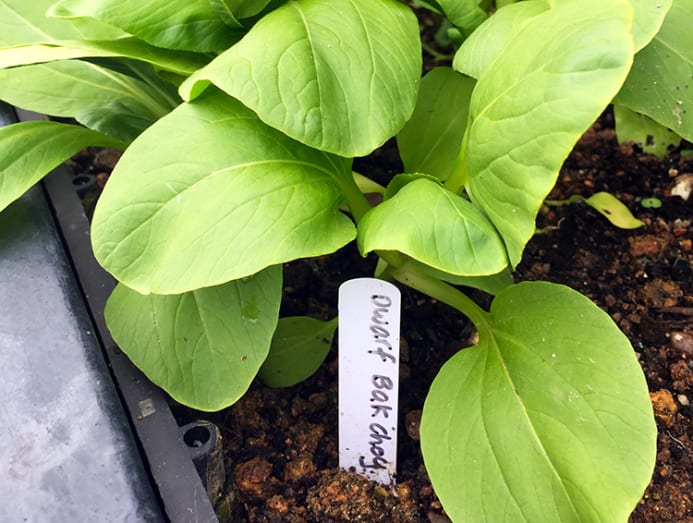
But the greatest challenge for urban farmers is truly economies of scale. "Agriculture on its ain is already a challenging manufacture due to industrialisation of farming and our food organization," said Low. "Scale is a limiting factor in the metropolis, and urban farming business models demand to exist able to suit to both the challenges of a globalised food arrangement and the availability of inexpensive food, whilst operating in areas of loftier cost and overheads."
It begins with cultivating an awareness of and demand for local produce among both consumers and businesses alike. For Cynthia Chua, co-founder of Spa Esprit Group – the people backside Noka – taking an interest in agriculture is more than necessary, as it will accept long-term benefits in preparing for the futurity generation of Singaporeans.
READ> How Singapore's restaurateurs are rising to the challenges of sustainability

Restaurants similar Noka, which choose to highlight local produce are an easy way in for consumers to acquire most the benefits of supporting local farming businesses. As a business organisation owner, Chua has also noticed that "travelling chefs from different countries are gaining interest in playing with our tropical produce." In Chua'due south opinion, it is the "right timing" to push innovation and go on to turn this "scene" into a fully sustainable industry.
"As a city-state, the general population is disconnected from farming and the way food is being farmed," said Low. "Urban farms should become touchpoints for us to learn virtually sustainable agriculture techniques, and encourage consumers in Singapore to eat more responsibly, locally and ethically."
READ> Is greenish the new glam? How tiny, rich Monaco is tackling sustainable tourism
Recent Searches
Trending Topics
gonzaleswidefirearm.blogspot.com
Source: https://cnalifestyle.channelnewsasia.com/experiences/urban-farming-singapore-229741

0 Response to "Raising the roof: Cultivating Singapore’s urban farming scene"
Post a Comment